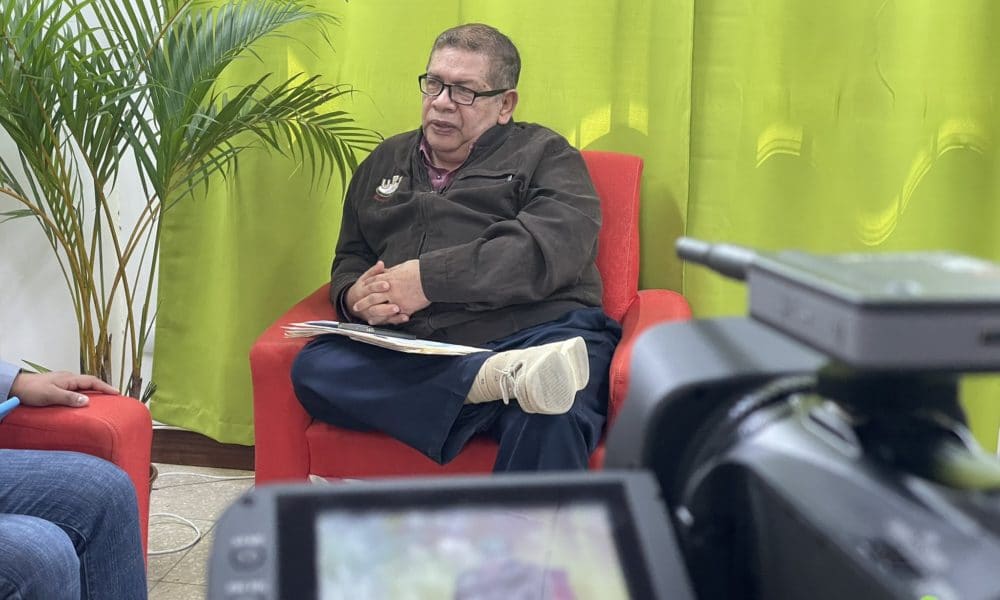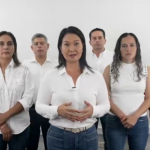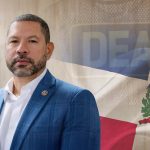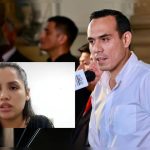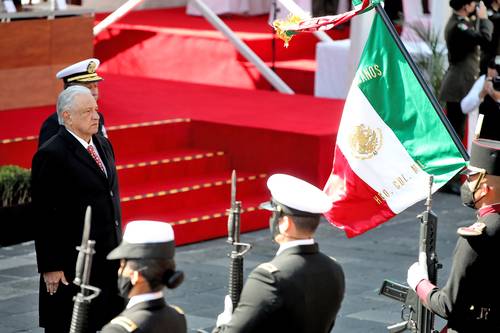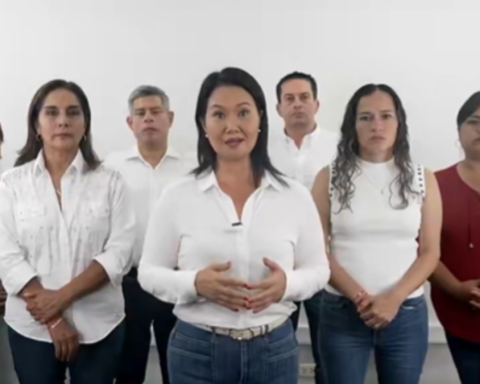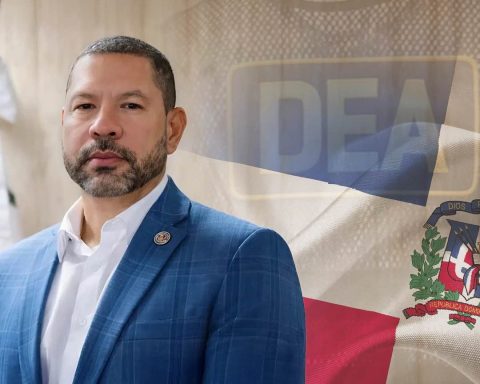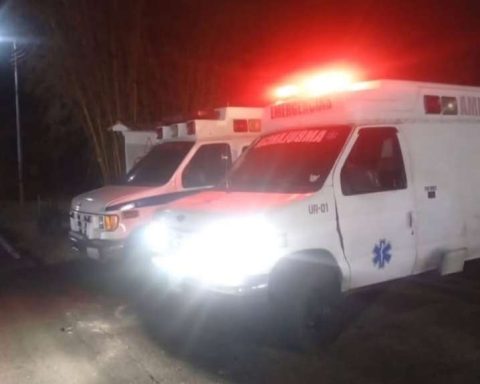The rector and founder of the Paulo Freire University (UPF), Adrián Meza, went into exile in Costa Rica, after the Daniel Ortega regime canceled the legal status of the university and confiscated it, as it did with five other universities. . What he describes as a robbery of more or less half a million dollars, but above all as a “Hard hit” to Nicaraguan education.
In an interview on the show TonightMeza stated that one of the options he is studying is to file a lawsuit against the State of Nicaragua for this arbitrary action, without legal basis but which affects hundreds of students in the country.
What is the situation of the Paulo Freire University and the other five private universities? The State says that they are cancelled, but that the assets have been transferred to new state universities. Does that mean they’ve been confiscated?
The legal status of Paulo Freire must be differentiated from the rest of the institutions. We, legally speaking, have ignored the legislative decree and continue to function, only in Costa Rica. But yes, evidently the assets of the university have been confiscated without any legal basis.
The Constitution prohibits confiscation. How can you appeal against this dispossession?
It is a much broader legal action, it is not just about claiming property, it should also focus on the issue of the right of our students and teachers to exercise education. This has to do with the conceptualization of education as a human right; in addition, with a series of Central American agreements that, precisely, speak of the right to education. There are clearly defined legal routes, and we are studying them.
What are those options you have?
A lawsuit against the State of Nicaragua in the Central American Court of Justice, representing us accordingly. We have not admitted, under any circumstances, that the Paulo Freire University has legally disappeared. No. It was intended to close it with a legislative decree that we do not recognize, because it is illegal, they do not have any legal effect. On the other hand, the route of the claim before the Inter-American Court of Human Rights, which has a special regulation, which also allows to solve the problem of the internal exhaustion of the procedural channels, when that exhaustion is materially impossible.
The Supreme Court is a corporate entity in the State of Nicaragua and does not have independence. It cannot be thought that we are going to exhaust the internal route when, precisely, we are already clear about what is happening with the Judiciary. This is contemplated by the regulations of the Inter-American Court of Human Rights.
The deputies maintain that the canceled universities did not fulfill their obligations before the Ministry of the Interior. What do you reply to that justification?
Two things that must be clear: first, the non-profit associations, which are called universities, their regulatory law is Law 704, as regards the cancellation of their legal status, it is not Law 143, and they know. Article 94 of Law 704 establishes why and how the legal status of a non-profit civil person, called a university, can be canceled. This requires a prior opinion from the National Council for Evaluation and Accreditation that says that the university does not have academic quality, as the law expressly says: academic insufficiency. So, the CNEA declares academic insufficiency, and asks the National Assembly to close it. This is how a legal person operating as a university is legally closed.
If we were to talk about Law 147 only, then there is also a problem of legality. All the universities that were closed tried to deliver financial statements to the Ministry of the Interior, and the Ministry systematically refused to receive the financial statements. I personally went on January 19 to do this procedure.
Suppose that the universities had refused to deliver their financial statements, article 24 of Law 147 says that before closing it, it must first be intervened by the Ministry of the Interior. How many universities were intervened before ordering the cancellation? The rules of due process are part of the obligations of the State of Nicaragua, in accordance with the framework of democratic security that it signed in the context of community law for Central America.
What do you think are the reasons why the regime canceled the universities?
I believe that the Nicaraguan political model considers it vital to nationalize higher education, for the obvious reasons that are linked to the spirit of rebellion that was confirmed in 2018, which has always been characteristic of university students. I always cite some important examples: in 1942, in Germany, students at the University of Munich who questioned Hitler’s fascism, and had their heads cut off. There is the massacre of Tlatelolco, in Mexico, in 1968 against university students. The 1989 massacre in Tiananmen, in China, against university students. University students have very sensitive skin when it comes to injustice. The models of power, obviously, resent that latent attitude of the students, when they cannot control the institution. Everyone knows that public universities quickly came under tight partisan control, but the rest of higher education in the country did not.
Do you think that for any particular reason they have gone after these universities?
I think if. In the case of Paulo Freire, I am aware that our public positions, which everyone knows, caused him particular annoyance, when in reality what the university was simply doing was fulfilling its duty: we drew attention to the issue of human rights, on the need to respect the guarantees of our students; We particularly spoke out in the case of our student Samantha Jirón, and all of this had already generated a climate of open hostility against the Paulo Freire University.
The new Ricardo Morales Avilés National Multidisciplinary University, which was created by the regime, absorbs several universities, including Paulo Freire. What does this mean for students and workers? Have you heard anything about it?
I understand that many of our students are asking for their academic certificates to find a way to leave the country; They are extremely upset because they are conceptualized as public university students, but they are going to be charged fees as a private university.
In relation to our workers, it seems to us an absolute cruelty that yesterday (Tuesday, February 8) they were fired without any job recognition. He listened to deputy Carlos Emilio López on Channel 2 saying no, that the State was going to guarantee job stability for the workers at the confiscated universities. I now recommend to Deputy López that he talk to our laid-off workers about job stability.
How many workers were affected?
35
How much is the value of what was confiscated in the case of the Paulo Freire University?
We think it’s about half a million dollars.
You went into exile in Costa Rica. Why did you make that decision? Had the authorities summoned him?
A colleague with a very important position in the Legislative Branch warned me that, indeed, at the request of the president of the National Assembly, there was already an arrest warrant, especially based on our reactions on the issue of the confiscation of private universities. .
I consulted with my children and my wife; the family consensus was that he leave the country immediately. One cannot stay in the living room of your house watching Netflix, to verify if it is true or not that they are going to bring it. Nicaragua is a country that does not work that way.
What is your demand from exile, as the founder of one of these canceled and confiscated universities?
My first demand as rector is that they not confiscate the UCA, that would be a major crime against education in Nicaragua. The UCA is 50 years of educational trajectory, generations of professionals have been trained there, but also, the UCA has a libertarian trajectory linked to the movements of social rebellion in our country. The last straw is to say that the UCA is a right-wing university, the UCA has always been a rebellious university.
My second demand is that they guarantee our students that, effectively, they will be given the treatment that corresponds to any student at a public university, that they will not be burdened with paying fees, that they will respect their academic journey, that they are not going to put obstacles and traps to finish their races. In relation to our workers, we are really surprised by the profound cruelty with which they have been treated, first announcing job stability, and then firing them in an illegal and inhumane manner, seems to us absolute cruelty.
doAnd what consequences do you see in the short and medium term with this action by the regime against freedom of thought and the autonomy of universities?
The action of the political model puts the quality accreditation model of higher education in Nicaragua into crisis. It left the National Council for Evaluation and Accreditation without real functions, which is going to have an immediate and profound repercussion on the system of accreditation of professional diploma courses in Central America. How is Nicaragua going to be able to accredit the quality of higher education, if the body created for that, the CNEA, prevails over its technical decisions, political decisions that have nothing to do with quality. That can lead us to no Nicaraguan title being recognized anywhere, because it does not fit with the regional accreditation system that is being configured in Central America. That’s serious.
I would ask the political model, who runs the government administration, to think seriously about the consequences of the things he is doing. They are consequences that will transcend borders, and that will transcend time. The government administration is wanting to revive a university model that disappeared in 1918 in Latin America, when the university students of Córdoba promoted the logic of university autonomy, of academic freedom, of the thinking student. Why does the State of Nicaragua want to condemn us to the caves in higher education? I honestly don’t get it.
